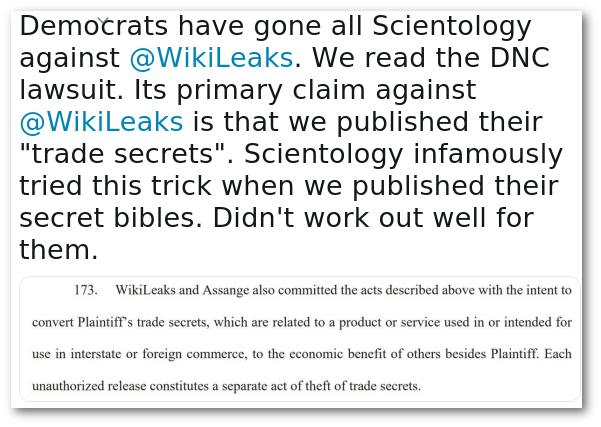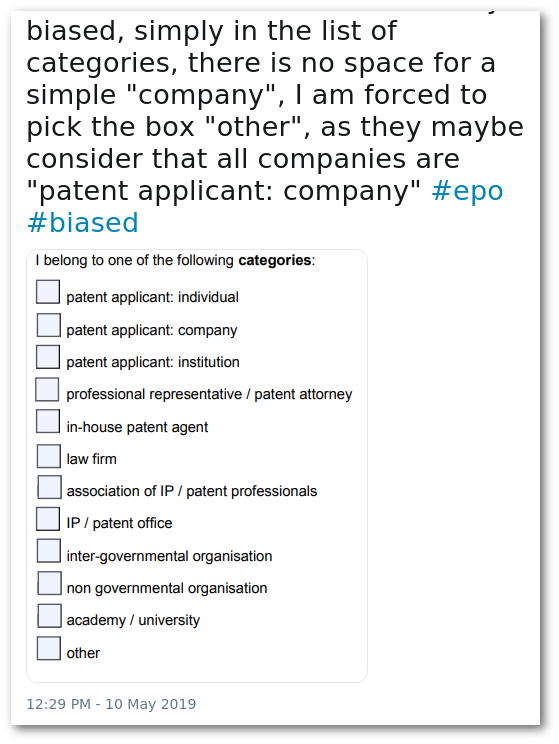


THE EPC does not matter to the European Patent Office (EPO); it is routinely being violated or 'danced around', just like 35 U.S.C. €§ 101 in today's USPTO. António Campinos hasn't blogged in months, but his most recent blog posts advocate software patents in Europe. They disguise that using familiar buzzwords. In addition, Campinos is ignoring clear directions from European politicians by allowing patents on nature and life, not just maths. It's outrageous.
Decisions G2/12 and G2/13 of the Enlarged Board of Appeal (EBA) of the EPO (Tomatoes II and Broccoli II) allowed the protection of plants per se…
The President of the European Patent Office (EPO) has submitted questions to the Enlarged Board of Appeal (EBA) which relate to the patentability of plants exclusively obtained by essentially biological processes and to T1063/18, a Technical Board of Appeal decision of December 2018.
In T1063/18, the Appeal Board disregarded an amendment to Rule 28(2) EPC, thereby undoing what was effectively an amendment to the Implementing Regulations to the Convention on the Grant of European Patents initiated by the European Union (EU). This decision has been widely seen as underlining the independence of the EPO's Boards of Appeal from the EU, an important and timely reminder for everyone grappling with the impact of Brexit on IP in Europe.
The President's decision to refer the matter to the EBA is highly controversial and has been widely criticised. The referral is described by the President as being necessary to restore legal certainty, but commentators have argued that rather than alleviating uncertainty, the President is adding to it by asking the EBA to revisit a question that they have already considered.
The decision issued in T1063/18 was an appeal against an Examining Division objection under amended Rule 28(2) EPC. The amendment to Rule 28(2) EPC was deemed void and the application, relating to pepper plants with improved nutritional value, was remitted to the Examining Division for further prosecution.
[...]
Nevertheless, the decision of T1063/18 was very warmly received by applicants in this field and news of the President's referral will be of concern to companies that filed European patent applications based on the G2/12 and G2/13 decisions, and generally to patent applicants in the European agricultural sector. In the meantime, however, the EPO has returned to granting patents in respect of plants or animals exclusively obtained by means of an essentially biological process. It is also worth emphasising that plants and plant material obtained by a technical process are unquestionably patentable.
It is not clear when the EBA will decide on the President's referral, but in the meantime it is worth noting that the decision in T1063/18, and the President's subsequent referral to the EPO's Enlarged Board of Appeal, sends a clear signal that it is the EPO's Appeal Boards that decide how to interpret the European Patent Convention for the purpose of granting patents, and not the EU or individual national governments.
The patent system is credited as the crucial legal foundation from which the first industrial revolution was built. Milestone inventions such as the steam engine, power looms, the Cotton Gin and many more were all granted patent protection and by providing manufacturers with legal rights to prevent copying, innovation and industry flourished.
epo.org link) titled "Search Matters 2019: Insight for searchers and patent information professionals focuses on AI" (when the EPO says "AI" it typically means software patents which are not legal but are granted anyway, even in clear defiance of the laws of Europe). To quote:
The EPO has held its annual Search Matters conference at its headquarters in Munich. The three day event, which has run for 31 consecutive years, offered training to patent search professionals from around the world. The programme focussed heavily on search strategies and techniques used by the Office.
The event was multi-faceted and comprised various learning formats, including at-the-desk sessions, interactive workshops as well as plenary lectures provided by EPO examiners and external experts. For the first time in the history of Search Matters, the programme featured a panel discussion that delved deeper into artificial intelligence (AI) and its implications in searching.
